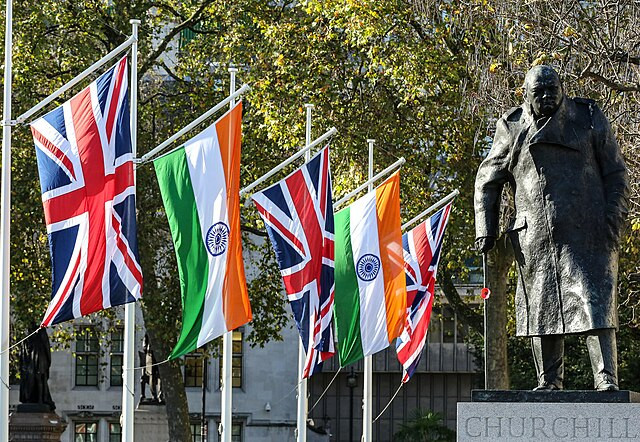The United Kingdom and India signed a sweeping bilateral trade agreement Tuesday, reducing tariffs on a wide array of goods including British whisky and automobiles, in a move both governments framed as a counterweight to rising global protectionism fueled by U.S. President Donald Trump's trade policies.
The deal, finalized after three years of intermittent negotiations, is expected to boost bilateral trade by £25.5 billion ($34 billion) by 2040, according to estimates released by the British government. The pact lowers tariffs on 90% of British exports to India, with many phased to zero over the next decade. In return, the U.K. will eliminate tariffs on 99.1% of Indian imports upon implementation.
British Prime Minister Keir Starmer hailed the deal as "a landmark" that "will grow the economy and deliver for British people and business." Starmer added: "Strengthening our alliances and reducing trade barriers with economies around the world is part of our Plan for Change to deliver a stronger and more secure economy here at home."
India's Prime Minister Narendra Modi described the agreement on X as "an ambitious and mutually beneficial Free Trade Agreement," saying it would "catalyse trade, investment, growth, job creation, and innovation in both our economies."
Under the agreement:
- Tariffs on U.K. whisky will fall from 150% to 75% immediately, and eventually to 40% within ten years.
- Automotive tariffs, currently above 100%, will drop to 10% under a quota-based system.
- A separate social security accord will exempt Indian professionals working temporarily in the U.K. from paying national insurance for up to three years, a provision Britain already extends to countries like Japan and South Korea.
The pact arrives amid intensifying global trade friction. Trump's reciprocal tariff measures have led countries like Britain and India to accelerate efforts to find alternative trading partners. "The timing couldn't be better," said Keshav R. Murugesh, CEO of WNS and chairman of the Confederation of Indian Industry UK Business Forum. "With the FTA enhancing the economic resilience of both the UK and India by providing access to new markets and reducing vulnerability to external shocks."
Despite the breakthrough, the agreement faced political criticism in Britain. Former Trade Secretary Kemi Badenoch opposed similar terms due to India's demands on worker mobility and social security. Current Trade Secretary Jonathan Reynolds defended the deal, stating: "There is no impact on the immigration system of the deal that we have agreed."
Negotiations, launched in January 2022, were disrupted by leadership changes in both countries and only resumed in earnest this February. Starmer, elected last July, prioritized completion of the deal ahead of a possible second term for Trump, whose administration has redefined global trade alignments.






